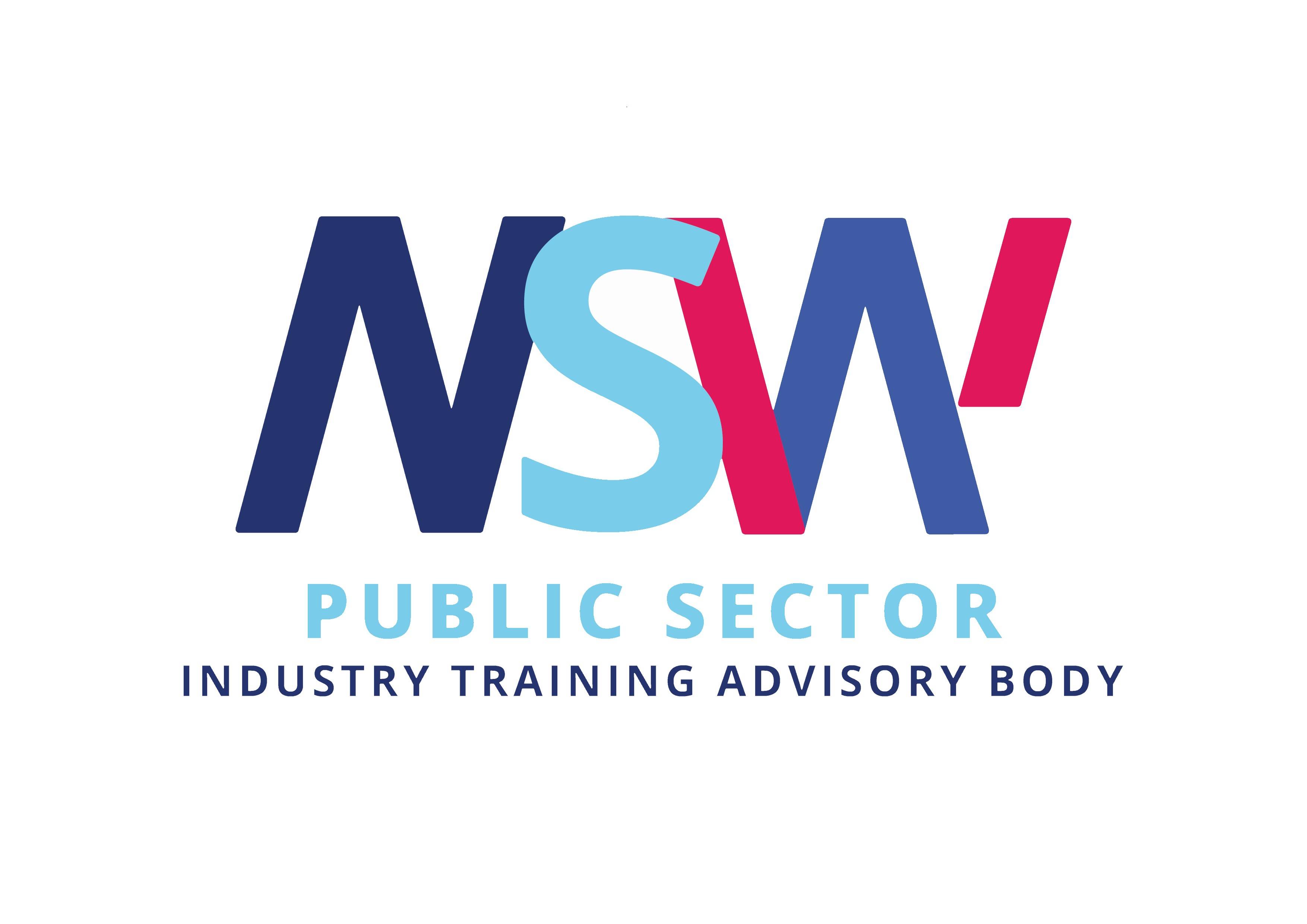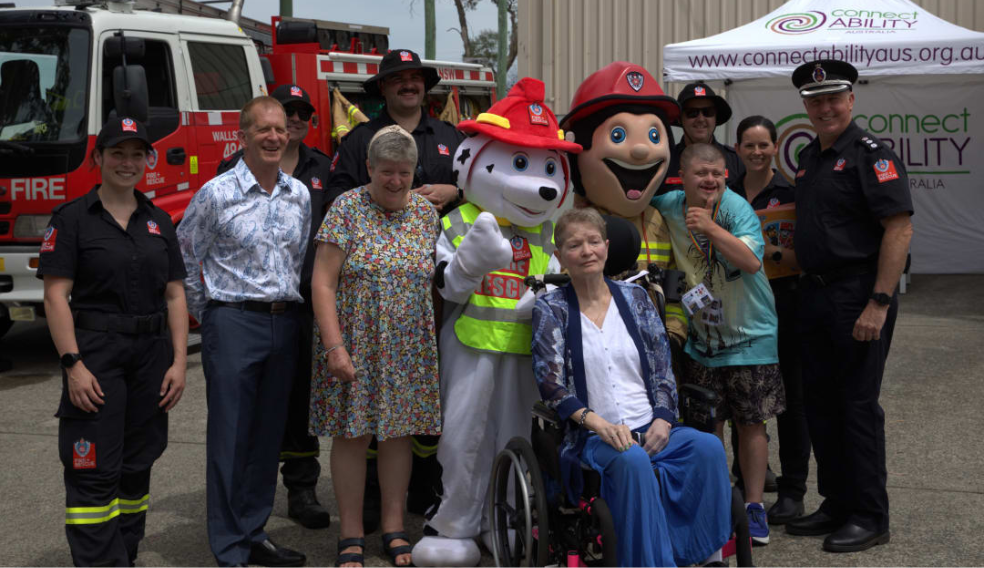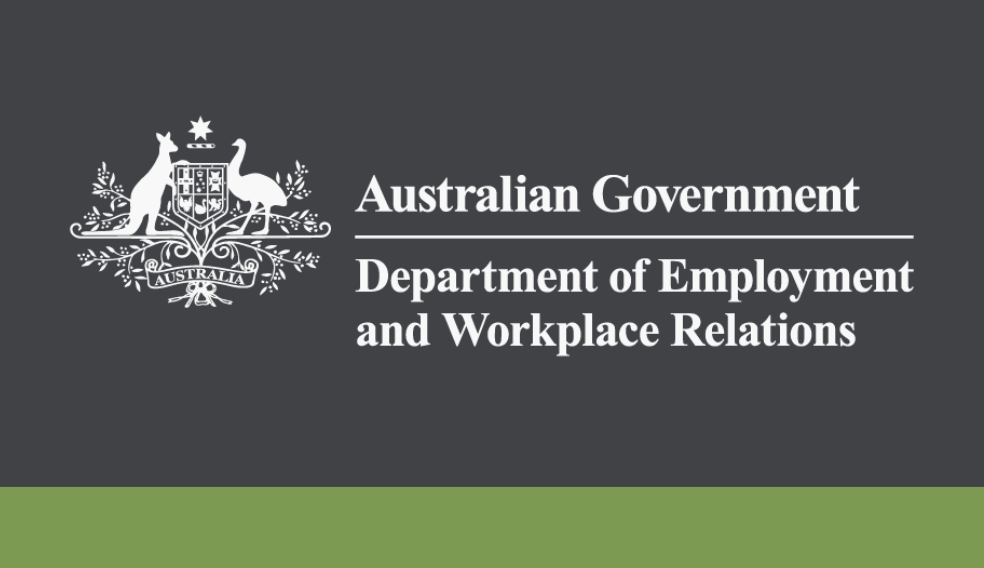Dec 18, 2024
NSW Public Sector ITAB December 2024 Newsletter
In this month's newsletter
- GTAN AND WTAN November Forums – Resources available
- NSW Skills Plan shaping future of Vocational Education and Training
- NSW Skills Plan based on data-driven insights and accountability
- NSW Skills List Management Policy updated – Version 3.2
- New email address for customer service enquiries
- Bridging NSW's Digital Skills Gap
- FRNSW promotes Fire Safety on International Day of People with Disability
- Skills Ministers endorse VET Qualifications Reform recommendations
- National Jobs and Skills Council Update
Best Wishes for the Holiday Season
The NSW Public Sector ITAB would like to wish you all the joy and peace of the upcoming holiday season.
Despite the ongoing economic and social challenges faced by our sectors, 2024 has been a year of significant achievements, made possible through strong relationships and thriving communities of practice.
We hope these successes have laid a solid foundation for an even more productive and rewarding 2025.
GTAN AND WTAN November Forums – Resources available
Facilitated by the NSW Public Sector ITAB, the Government & Public Safety and Water Industry Skills and Training Networks (GTAN and WTAN) meet regularly to discuss and address issues impacting skill development within the government, public safety, and water industries across metropolitan, regional, and rural NSW.
On behalf of both networks, I would like to extend my gratitude to all the presenters who generously shared their insights during the GTAN & WTAN forums held on 26 November 2024.
Special thanks to:
- James Stroud (Public Skills Australia)
- Chris Greentree (TAFE NSW)
- George Rikiti (Acadiam)
- George Wall (BuildSkills Australia)
- Justice Esoun-Nyarkoh (Sydney Water)
- Lisa Andersons (DCCEEW)
Your contributions and continued support of the Public Sector ITAB are greatly appreciated.
Proposed dates for the 2025 GTAN and WTAN forums are 11–12 March 2025 and 20–21 May 2025.
NSW Skills Plan shaping future of Vocational Education and Training
The NSW Skills Plan 2024–28: Building Skills and Shaping Success, released by the NSW Department of Education, outlines a forward-thinking strategy to strengthen vocational education and training (VET) in the state. This is the first comprehensive plan since 2008, designed to foster economic growth, individual wellbeing, and industry development.
Key highlights
The plan builds on the NSW Government’s commitments under the National Skills Agreement and addresses the findings of the NSW VET Review. It adopts a system stewardship approach, emphasising collaboration between the government and stakeholders to reform the skills system and target strategic priorities.
Focus areas
The plan prioritises addressing skill shortages in critical industries such as construction, digital and cybersecurity, and clean energy transitions.
It targets three core areas for system reform:
- Funding focused on priority skills and outcomes.
- Ensuring TAFE NSW remains strong and stable.
- Local skills planning tailored to community needs.
Strategic priorities
Five strategic priorities guide the plan’s implementation:
- Align skilling efforts with government priorities.
- Enhance equitable access, pathways, and outcomes for learners.
- Strengthen partnerships with industry and employers.
- Support and grow the VET teaching workforce.
- Foster system responsiveness and innovation.
Visit the Department of Education website to download the following:
- NSW Skills Plan 2024-28
- Interim Skills Outcome Framework
- Critical Skills Areas Data Appendix
- NSW Skills Plan on a page
NSW Skills Plan based on data-driven insights and accountability
Data and evidence underpin the new NSW Skills Plan, ensuring informed decision-making and performance monitoring. This evidence will be featured in a range of initiatives including:
- A Skills Outcomes Framework which introduces a system-level accountability structure to track progress.
- The State of the System Report (due for release in 2025) will analyse labour market trends and workforce challenges.
- An interactive Skills Outcomes Dashboard, also set for 2025, will provide real-time insights into system performance.
The NSW Government has already commenced implementing key elements of the plan, including introducing a new charter for TAFE NSW. Annual report cards will track progress, ensuring transparency and accountability, with regular updates planned throughout 2025.
By focusing on critical industries, supporting learners and educators, and leveraging data-driven strategies, the NSW Skills Plan sets a robust framework for building a dynamic and responsive VET system to meet the state’s evolving needs.
This strategic initiative positions NSW as a leader in shaping a future-ready workforce, driving both economic and social prosperity.
NSW Skills List Management Policy updated – Version 3.2
The NSW Skills List Management Policy (Vs3.2) has been updated and is now available.
This policy outlines the criteria used to assess qualifications for inclusion and/or removal from the NSW Skills List and the two approaches for adjusting the NSW Skills List – through department-initiated changes and proposals from stakeholders.
This update to the policy also outlines the data components that have been enhanced with additional and more detailed modelling, to better support the assessment of proposals to make changes to the Skills List as part of a Skills List Review.
New email address for customer service enquiries
Training Services NSW has changed its name to ‘Training Services’ under a realignment within the department.
Please note our new email address for customer service enquiries from providers is TSCust.Service@det.nsw.edu.au although we will continue to receive enquiries sent to the old email address, TSNSWCust.Service@det.nsw.edu.au. You may wish to update your records accordingly.
Bridging NSW's Digital Skills Gap
The 20% Alternative Pathways Pledge, part of the NSW Digital Skills and Workforce Compact, commits organisations to hiring 20% of their entry-level digital workforce through alternative educational pathways such as VET, micro-credentials, bootcamps, and traineeships.
Key goals by 2030:
- Add 31,000 diverse workers to the digital sector.
- Increase women in tech roles by 7%.
- Double representation of First Nations Australians in tech.
- Boost participation of people with disabilities by 4%.
This initiative enhances VET's role in addressing skills shortages and supports NSW’s strategic vision for a competitive, inclusive digital economy. Learn more at the NSW Digital Compact website.
FRNSW promotes Fire Safety on International Day of People with Disability
Fire and Rescue NSW (FRNSW) marked the International Day of People with Disability with a fire safety education initiative in Newcastle, hosted by ConnectAbility. Firefighters from the Metro North Command, including the Wallsend Fire Station crew, delivered interactive demonstrations and hands-on activities tailored to individuals of all abilities.
The event highlighted FRNSW’s commitment to ensuring fire preparedness for all members of the community.
With people with disabilities accounting for nearly 50% of house fire fatalities, FRNSW aims to reduce this risk through accessible resources and education.
ConnectAbility Australia is a not-for-profit organisation supporting 1,700 individuals across the Hunter and Central Coast. Since its founding in 1992, the organisation has championed inclusivity and community support.
Terry Farley, FRNSW Metro North Area Commander, reinforced the agency’s dedication to empowering communities with the knowledge and tools needed to enhance safety for everyone.
Read the full story on the Fire and Rescue NSW website.
Skills Ministers endorse VET Qualifications Reform recommendations
Commonwealth, state, and territory skills ministers have endorsed transformative recommendations from the Qualifications Reform Design Group (QRDG) to modernise VET qualifications, increasing flexibility and reducing complexity.
The QRDG’s report, Unlocking the Potential of VET, proposes a departure from a one-size-fits-all qualifications system to one designed for varying purposes:
- Occupation-specific qualifications: Maintain a focus on safety, licensing, and specific job requirements.
- Industry-focused qualifications: Enable learners to transition between related occupations while retaining industry relevance.
- Cross-sectoral learning: Emphasise transferable skills, such as literacy, digital literacy, and innovation, beyond traditional units of competency.
QRDG Chair Craig Robertson highlighted the need for adaptable skills to support career mobility, lifelong learning, and reduced costs for students and training providers. These reforms aim to equip Registered Training Organisations (RTOs) with the flexibility to use innovative teaching methods and embed foundational skills across qualification levels.
The reforms also encourage industry to develop qualifications linked to broader vocational purposes, ensuring the VET sector meets the evolving demands of the workforce.
National Jobs and Skills Council Update
Jobs and Skills Councils (JSCs) are a national network of industry owned and led organisations, designed to provide leadership in addressing national skills and training needs. They have been established to supply industry with a strong and strategic voice within the VET sector as part of broader government-led skills reform.
Activity related to key JSCs affiliated to Public Sector industries is outlined here:
Public Skills Australia (PSA): Public Skills Australia has a range of projects underway.
Find out more and/or provide feedback using the links below:
BuildSkills Australia (BSA): BuildSkills is conducting both Training Product and Research Projects which can be accessed using the links below:
- White Card Implementation
- Minimum Australian Context Gap Training for Migrant Plumbers
- VET Future Readiness Review
Water industry stakeholders should reach out to George Wall for any specific water sector issues.
Future Skills Organisation (FSO): FSO is conducting a range of Project which can be accessed using the following links:












